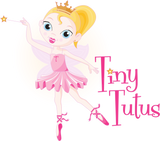Ballet Promotes Social Development in Preschool Children
Children, from a very young age are drawn to music. It’s a beautiful thing to watch babies, toddlers and preschool children being to move and dance as soon as they hear a beat.
The physical benefits of dance are well-known and easy to see – but ballet also brings magical social and emotional benefits. Preschool children will learn social skills such as cooperation and peer interaction as well as building self-esteem when they are involved in early childhood appropriate ballet experiences.
Self-Control: Early childhood ballet helps little ones to control their bodies when music and movement are combined. This is fundamental development that leads to better concentration and self-control. By following the movements of others, your little ballerina is learning to move to the tempo of the music, pay attention to the teacher and memorize simple movement patterns. Early childhood ballet classes provide organic opportunities to build listening skills and impulse control, and help ballerinas to be successful in the classroom.
Self-Esteem: When little ballerinas dance together, they begin to build a sense of community and appreciation for each other. In ballet, children can applaud one another’s efforts and encourage each other as they dance. In early childhood appropriate ballet, where classes are open to parents, when a little one learns a new step or completes a dance routine, she will gain a sense of accomplishment and begin to build her self-esteem as she can share that magic with a special grownup as well as class friends.

Communicating: The National Dance Education Organization supports the belief that, children learn movement patterns just easily as they learn language. Often children dance before they are able to talk. Ballet is a way for young children to express their emotions more purely than they can express verbally. When children are involved in learning ballet routines and creative movement, they are learning that their movements can tell a story and communicate ideas. As the NDEO states, “To the young child, verbal language and movement are entwined.”
Co-operation: Very young ballerinas are still egocentric and may not have reached the developmental milestones of co-operating and sharing. Ballerinas in early childhood appropriate classes have a world of opportunities to explore working together in a group.
Ballerinas learn that there are times for creative free expression and times when being part of group and moving in the same way are both fun.

 Simone began her ‘dancing career’ at three years of age. She gained her formal Dance Teaching Qualifications at 18 years of age, before completing a degree in Early Childhood Education. Just a few years into her full time school teaching career, Simone was merit selected for the position of Assistant Principal and became one of the youngest Assistant Principals in Newcastle and one of the only with Early Childhood Qualifications.
Simone began her ‘dancing career’ at three years of age. She gained her formal Dance Teaching Qualifications at 18 years of age, before completing a degree in Early Childhood Education. Just a few years into her full time school teaching career, Simone was merit selected for the position of Assistant Principal and became one of the youngest Assistant Principals in Newcastle and one of the only with Early Childhood Qualifications.
Throughout this time, Simone opened and operated her own dance studio. The successful studio saw her dancers excel at dance competitions and public performances, as well as gain success on a professional level in productions of “Tap Dogs”, “Steel City” and “Annie”.
Tiny Tutus is a dedicated preschool ballet program especially for dancers under 5 years of age, providing an early childhood appropriate curriculum.
